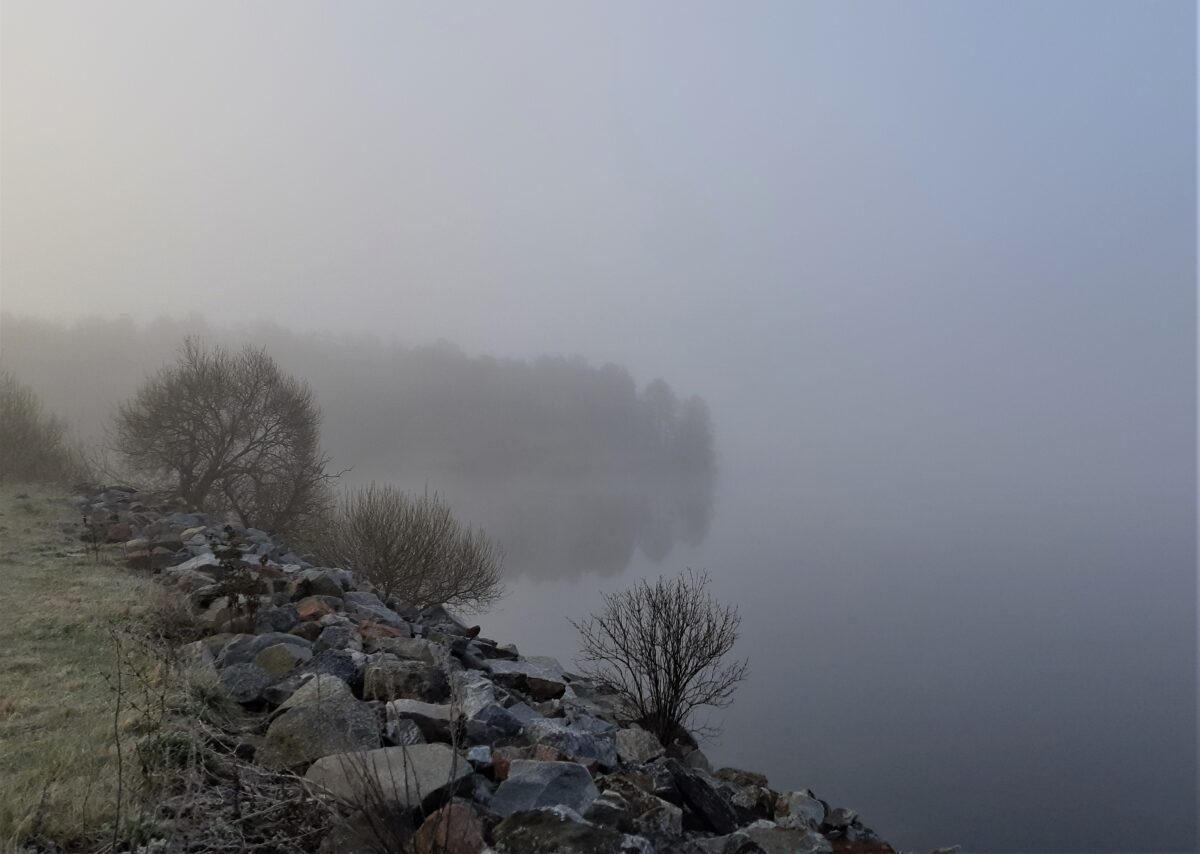Author: admin
Episode 33: Journey into the Microcosmos
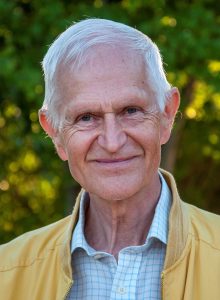
The Martinus Cosmology Podcast presents the second in a series of lectures given in English by Ole Therkelsen.
In “Journey into the Microcosmos”, Ole Therkelsen describes how our behaviour affects the entire universe of microlife that inhabits our bodies. The Old Testament and the New Testament encourage the development of neighbourly love in the form of love for other human beings. One of the major tasks of The Third Testament is to expand this idea of neighbourly love to include the microbeings within us, whose life and well-being are dependent on what we eat and drink, what we think and feel, how well we sleep and how we treat our corpses after death. He talks about the law of karma and the law of attraction and repulsion and their connection to genes, chromosomes and congenital disorders. Gratitude for one’s fate – however pleasant or unpleasant – is shown to be a natural consequence of initiation into the macrocosmos, mesocosmos and microcosmos and an important factor on our journey towards gaining cosmic consciousness.
Ole explains Martinus’s symbol no. 7 “The Principle of Life Units” in this lecture. You can see the symbol and read a short explanation here: symbol no. 7.
The symbol is explained in detail in The Eternal Picture, vol. 1 and in The Ideal Food by Martinus.
Ole Therkelsen (born in 1948) is a chemical engineer and a biologist with a life-long interest in Martinus Cosmology. He was introduced to Martinus Cosmology by his parents when he was a small boy, and since 1980 he has given about 2000 lectures on Martinus’s world picture in fifteen countries in six different languages. Many of his lectures may be heard on http://www.oletherkelsen.dk and on http://www.youtube.com. He is the author of Martinus, Darwin and Intelligent Design – A New Theory of Evolution and Martinus and the New World Morality. His books are available from http://amazon.com and http://amazon.co.uk.
This lecture was given by Ole Therkelsen at The Martinus Centre, Klint, Denmark on 4th August 2004.
Music composed and performed by Lars Palerius.
Photo: Berit Djuse.
Martinus’s literature is available online on the Martinus Institute’s website: martinus.dk. Here you can also find information about the international summer courses at the Martinus Centre in Klint, Denmark
Episode 32: Two Kinds of Love
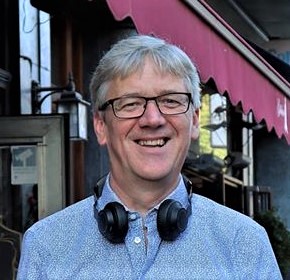 In this interview with Mary McGovern Micael Söderberg reflects on existential questions about eternity, infinity and the meaning of our lives and on various aspects of what Martinus terms the sexual pole transformation of mankind.
In this interview with Mary McGovern Micael Söderberg reflects on existential questions about eternity, infinity and the meaning of our lives and on various aspects of what Martinus terms the sexual pole transformation of mankind.
Micael Söderberg is a sociologist, one of the team of creators and hosts of the Swedish podcast on Martinus Cosmology kosmologipodden.se and a member of the voluntary teaching staff at the Martinus Centre, Klint, Denmark.
If you would like to read more about this topic, we can recommend The Third Testament – Livets Bog (The Book of Life), vol. 5: https://www.martinus.dk/en/ttt/index.php?bog=55
This podcast was recorded by Mary McGovern at Stiftelsen Martinus Kosmologi, Stockholm, Sweden on 30th December 2019.
Music composed and performed by Lars Palerius.
Martinus’s literature is available online on the Martinus Institute’s website: The Martinus Institute. Here you can also find information about the international summer courses at the Martinus Centre in Klint, Denmark
Episode 31: The Road towards the Light

The Martinus Cosmology Podcast presents the first in a series of lectures given in English by Ole Therkelsen.
In “The Road towards the Light” Ole Therkelsen describes some of the core principles and laws of life that are central to Martinus’s world picture. This world picture is eternal, even though we experience our daily lives from a temporal perspective. Life can be viewed in two perspectives: the eternal perspective and the temporal perspective. Confusion can arise when we fail to acknowledge both perspectives. War, illness and all forms of suffering are of course very unpleasant, but from an eternal perspective these things, like everything else, are “very good”. “Behold, everything is very good”, the Bible states. This is not a cynical view, but an explanation of the role of darkness. All darkness forms the contrast that is essential to our ability to experience light at all. The principle of contrast is an eternal principle, as is the principle of cycles and the principle of hunger and satiation, which drives us away from what we are tired of and towards what we are longing for. This lecture can support us in our attempts to understand the “direct speech of life” and to regain our long-lost consciousness of eternity.
Ole explains Martinus’s symbol no. 4 “The Road towards Light” in this lecture. You can see the symbol and read a short explanation here: https://www.martinus.dk/en/martinus-symbols/overview-of-the-symbols/symbol-4
The symbol is explained in detail in The Eternal World Picture, vol. 1 (https://shop.martinus.dk/en/english-books-10/major-books-38/the-eternal-world-picture-vol-1-188.html) and Livets Bog (The Book of Life), vol. 1 (https://shop.martinus.dk/en/english-books-10/major-books-38/livets-bog-the-book-of-life-vol-1-186.html), both by Martinus.
Ole Therkelsen (born in 1948) is a chemical engineer and a biologist with a life-long interest in Martinus Cosmology. He was introduced to Martinus Cosmology by his parents when he was a small boy, and since 1980 he has given about 2000 lectures on Martinus’s world picture in fifteen countries in six different languages. Many of his lectures may be heard on http://www.oletherkelsen.dk and on http://www.youtube.com. He is the author of Martinus, Darwin and Intelligent Design – A New Theory of Evolution and Martinus and the New World Morality. His books are available from http://amazon.com and http://amazon.co.uk.
This lecture was given by Ole Therkelsen at The Martinus Centre, Klint, Denmark on 27th July 2004.
Music composed and performed by Lars Palerius.
Photo: Berit Djuse.
Martinus’s literature is available online on the Martinus Institute’s website: martinus.dk. Here you can also find information about the international summer courses at the Martinus Centre in Klint, Denmark
Episode 30: The World Today and in the Future
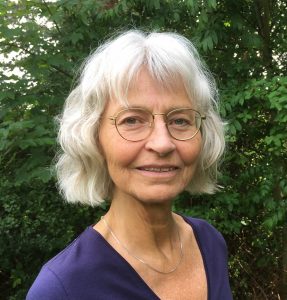 A sphynx-like mix of brutality and love, selfishness and selflessness, mankind is constantly evolving – ultimately towards a totally loving state. Unfinished and incomplete, this process is reflected in the current world situation, where we see both our negative tendencies and our positive ones. The news is full of stories of war, terror, crime, natural catastrophies, political unrest and financial imbalance. At the same time, we see many positive tendencies that take the evolution of the Earth in a more humane direction within many diverse areas of society, whether it be humane prison reform, new ways of building businesses, the humane treatment of animals, ways of dealing with climate change or the dawning of ideas about how to reorganise the world’s financial structure. In this interview with Mary McGovern, Solveig Langkilde takes a snapshot of the current situation.
A sphynx-like mix of brutality and love, selfishness and selflessness, mankind is constantly evolving – ultimately towards a totally loving state. Unfinished and incomplete, this process is reflected in the current world situation, where we see both our negative tendencies and our positive ones. The news is full of stories of war, terror, crime, natural catastrophies, political unrest and financial imbalance. At the same time, we see many positive tendencies that take the evolution of the Earth in a more humane direction within many diverse areas of society, whether it be humane prison reform, new ways of building businesses, the humane treatment of animals, ways of dealing with climate change or the dawning of ideas about how to reorganise the world’s financial structure. In this interview with Mary McGovern, Solveig Langkilde takes a snapshot of the current situation.
A lecturer and teacher of Martinus Cosmology for over 30 years and a member of the voluntary teaching staff at the Martinus Centre, Klint, Solveig Langkilde has studied Martinus Cosmology since she was introduced to his works by her parents when she was 17 years old. She has run workshops and given many lectures in Denmark, Sweden and Norway.
This podcast was recorded by Mary McGovern at The Martinus Institute, Copenhagen, Denmark on 30th November 2019.
Music composed and performed by Lars Palerius.
Martinus’ literature is available online on the Martinus Institute’s website: The Martinus Institute. Here you can also find information about the international summer courses at the Martinus Centre in Klint, Denmark
A video version of podcast no. 29, “The Christmas Gospel”
Here’s a video version of podcast no. 29, “The Christmas Gospel” – filmed in Frederiksberg, Copenhagen in September.
Episode 29: “The Christmas Gospel” – a new publication
Mary McGovern interviews translator Anton Jarrod about his first translation of a book by Martinus – “The Christmas Gospel”. It will be published for the first time in English on 10th December.
When Martinus gives his lecture on “The Christmas Gospel” on 10th December 1944, the world is still in the darkness of war and largely unaware of its most abhorrent horrors. But its end is approaching and there is a glimmer of light. And it is this light in the darkness that is perhaps the very subject of Martinus’s cosmic retelling of the nativity. For him, the gospels reveal and symbolise a fundamental fact about the evolution of cosmic consciousness – that it is born or emerges in the terrestrial human being, living in the darkness of the animal kingdom.
The cosmic story of the living being’s evolution and the various aspects of life that relate to it are also seen to be told through the nativity narrative. The virgin birth, the persecution by Herod, the gifts of the three holy kings, and the message of peace and good will as told in the gospels reveal as much about the evolution of society, of science and art, of sexual pole transformation and sexual development as they do about the life of Jesus. And it is this hidden, deeper layer of meaning that Martinus presents to his readers in a fascinating little book that is now available in English, from 10th December 2019, exactly 75 years since Martinus gave the lecture that forms the basis of this book, which he published in Contact Letters during 1945-46. During our own troubled times, reading The Christmas Gospel may throw some warm light this winter.
128 pages, price 55 DKK incl. Danish tax, 44 DKK excl. tax (approx. £5, US$6.50. €6 plus postage). Available from shop.martinus.dk from 10th December.
Anton Jarrod is a writer and researcher currently living in London and Cambridge, UK. He writes and speaks about modern spirituality. He is also the author of “Martinus Cosmology and Spiritual Evolution” – a book about the work of Martinus, whom he describes as “one of modern spirituality’s still undiscovered gems.” http://www.antonjarrod.com/
This podcast was recorded by Mary McGovern in Frederiksberg, Copenhagen, Denmark on 30th September 2019.
Music composed and performed by Lars Palerius.
Martinus’ literature is available online on the Martinus Institute’s website: www.martinus.dk Here you can also find information about the international summer courses at the Martinus Centre in Klint, Denmark.
Episode 28: Death and the Continuity of Consciousness
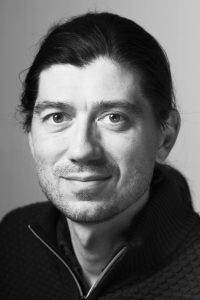 What is death? What happens when we die? Is there life after death? If so, what can we expect when we leave our physical bodies?
What is death? What happens when we die? Is there life after death? If so, what can we expect when we leave our physical bodies?
Materialistic science deems reincarnation improbable, but recent research into so-called “near-death experiences”, which have been seen to occur when people who are clinically dead are resuscitated, questions this view and points to a continuity of consciousness after the death of the physical body – a view shared by Martinus.
In this podcast Mary McGovern interviews Jens Christian Hermansen about Martinus’s view of death, life after death and reincarnation – an optimistic and non-materialistic view that may allay the fears many have about death. As the sun sets on our physical life, he writes, it rises on a very real life on the spiritual planes, where our inner thoughts form our outer world. He compares death to sleep; they are parts of the same principle.
Jens Christian Hermansen is a sociologist and a former researcher at the University of Copenhagen. He is the editor-in-chief of the Martinus Institute’s magazine KOSMOS and is also involved in teaching, making videos and organising conferences about Martinus Cosmology.
If you would like to read more about this topic, we can recommend the article “Beyond the Fear of Death” by Martinus: https://www.martinus.dk/en/articles/index.php?mode=1&artikelnr=640
This podcast was recorded by Mary McGovern at The Martinus Institute, Frederiksberg, Copenhagen, Denmark on 24th September 2019.
Music composed and performed by Lars Palerius.
Photo: Marie Rosenkrantz Gjedsted
Martinus’ literature is available online on the Martinus Institute’s website: martinus.dk. Here you can also find information about the international summer courses at the Martinus Centre in Klint, Denmark
Episode 27: Reincarnation in a Nutshell
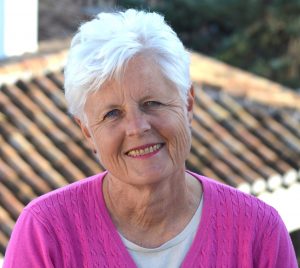 Is there any truth in the one-life theory? Or is reincarnation more plausible? And, if so, how does it work? Can consciousness exist when the physical body is clinically dead? How can we explain so-called near-death experiences? And what about people who claim to remember previous lives?
Is there any truth in the one-life theory? Or is reincarnation more plausible? And, if so, how does it work? Can consciousness exist when the physical body is clinically dead? How can we explain so-called near-death experiences? And what about people who claim to remember previous lives?
In this podcast Mary McGovern interviews author Else Byskov about her claim that death is an illusion and that consciousness cannot be extinguished. They look at the evidence for reincarnation and phenomena such as child prodigies and extraordinary talents. Else Byskov hopes that insight into the evidence for reincarnation will help remove any fear of death we may have and convince us of our immortality.
For further reading see the free online version of Martinus’s book “The Principle of Reincarnation”: https://www.martinus.dk/en/ttt/index.php?bog=16.
Else Byskov has written and published seven books in English about Martinus Cosmology, including Reincarnation in a Nutshell (with Maria McMahon), Death is an Illusion and The Art of Attraction. Some of her books are also available in Danish, German and Spanish. See her website: http://newspiritualscience.com/
This podcast was recorded by Mary McGovern at The Martinus Centre, Klint, Denmark on 9th August 2019.
Music composed and performed by Lars Palerius.
Martinus’s literature is available online on the Martinus Institute’s website: www.martinus.dk/en. Here you can also find information about the international summer courses at the Martinus Centre in Klint, Denmark.
Episode 26: Conscience
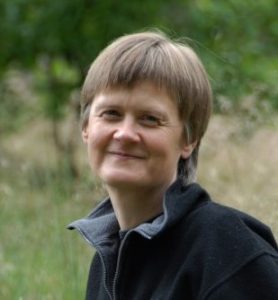 What do we understand by “conscience”? We have all had experiences of having a guilty conscience and a clear conscience. We see that our conscience is connected to our varying ideas about good and evil, so that an action that would give one person a guilty conscience would not bother another.
What do we understand by “conscience”? We have all had experiences of having a guilty conscience and a clear conscience. We see that our conscience is connected to our varying ideas about good and evil, so that an action that would give one person a guilty conscience would not bother another.
Conscience, according to Martinus, is one of the factors that transform animals into truly humane human beings. It evolves from incarnation to incarnation and regulates what we have the heart to do to others. It becomes an “inner voice” that helps us to live up to our changing ideals.
Mary McGovern interviews Karin Jansson on the evolution of our conscience, the difference between “shame”, “sin” and a “guilty conscience” and on how our ideals becomes “pillars of light” guiding us towards higher states of consciousness and creativity.
If you would like to read what Martinus himself writes about conscience, here is a link to his article entitled “Conscience”: https://www.martinus.dk/en/articles/index.php?mode=1&artikelnr=2040
An experienced lecturer and teacher of Martinus Cosmology and a member of the voluntary teaching staff at the Martinus Centre, Klint, Karin Jansson is also a journalist, the editor of the Swedish magazine Odlaren (The Grower) and one of the founders of a school in Holma, Sweden that runs courses on permaculture, among other things.
This podcast was recorded by Mary McGovern at The Martinus Centre, Klint, Denmark on 2nd August 2019.
Music composed and performed by Lars Palerius.
Martinus’ literature is available online on the Martinus Institute’s website: The Martinus Institute. Here you can also find information about the international summer courses at the Martinus Centre in Klint, Denmark

